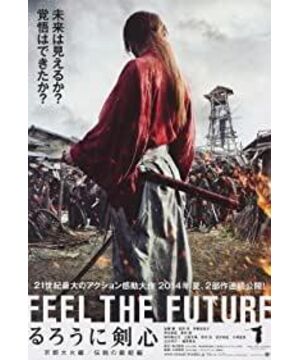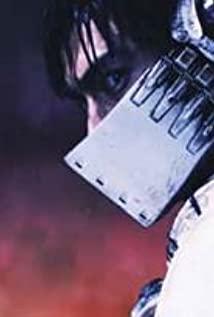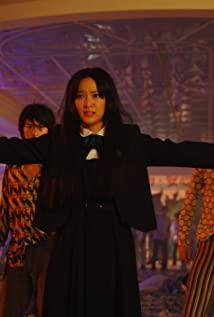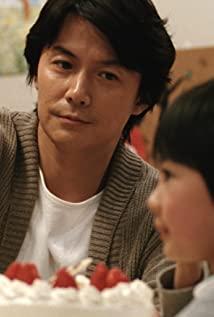7. I didn't fully understand until the end of this article
Kenshin is not a work about political struggles or about personal growth.
It's actually an "anti-hero" period drama.
Kenshin has always been considered a girl manga, and I also had this tendency after reading the first two films, but after reading the last one of this article, I think this kind of evaluation of swallowing dates is biased.
Why do you say that?
First of all, regarding the political struggle, Zhi Zhixiong has always been in a fictional field in the film, that is to say, it is not a real character.
No matter how terrifying his deeds were, after the fire at the end of the curtain, Nirvana was reborn, and he turned into a stronger flame of revenge to devour the Meiji era.
When fighting, he is also ruthless and ruthless, unlike what people do.
It's hard to imagine that this is a period drama work that has completely lost its sense of authenticity.
Then we should consider why the character of Zhi Zhixiong is so unreal.
Because the character Zhi Zhixiong itself is fictional in the play.
First of all, in the plot, Zhi Zhixiong is a representative of the regime who wants to overthrow the Meiji government. He has strong ships and cannons and a samurai army.
But the film does not mention his political ideas, policies, or even what kind of country he wants to build.
This shows that the story has no meaning to tell about the struggle for the regime, and Zhi Zhixiong's "big dream of building a country" is always just a cover.
When he negotiated with Kondo Hirobumi, without saying a few words, Kondo said: The negotiation cannot be established.
This negotiation has no practical significance, the only effect is to promote the plot - the complete opposition between Zhi Zhixiong and Kenshin.
In fact, according to Zhi Zhixiong's "the strong eat the weak" and his experience, it is not difficult to guess that he actually represents the old samurai side, and Kenshin also belongs to the samurai according to reason, in fact, there is no fundamental contradiction.
But the opposition in the plot is a metaphor for the opposition between Kenshin and Zhizhixiong's ideas
When it comes to ideas, Kenshin's ideas have progressed in the first two parts, but what about the third part?
"Since it's a living sword that doesn't hurt people's lives, then your own life is counted as one's own life." In conclusion, I can't see any deepening of the concept, and it seems more like an excuse to use a knife for myself.
Has Kenshin grown? I don't think he has, he hasn't changed anything, nothing has changed, the only change is that he learned a new big move, or the plot needs it.
So this has nothing to do with personal growth at all. A lot of the plots in it feel like nonsense. Kaoru's fall into the sea has not brought changes, and Kenshin's companions are still so stupid, and they have no connection with the theme of growth.
The only new change in the film is actually the activity of the Meiji government.
In other words, the crimes and hypocrisy of the Meiji government.
The whole third part actually revolves around this - "The Sins of the Government"
In this way, it is not difficult to understand, what exactly did Zhi Zhixiong make up, and what does he represent?
Contact the second part, he has actually been playing the role of a "victim"
Just look too scary, act too cruel
Let people forget that he is actually just a "victim" of the government, a sad swordsman abandoned by the times.
What he wants to do is not actually a "great dream of founding a country", but a real "revenge", revenge against the new government, to sound the alarm for the new era
The more terrifying he looks and the more cruel he is, the more he reflects the "evil side" of the government and the new era
He symbolizes an old warrior undead, always ready to dig a grave for a new era
Perhaps Zhi Zhixiong was the most proud of the time when he was praying for the list of people who were persecuted by the Meiji government.
In this position, it can be said that Zhi Zhixiong is a righteous party, rehabilitating unjust cases, which is very pleasing to people's hearts.
According to the value logic of film and television works, evil can never win, but why does Zhizhixiong still lose?
There is only one answer - because of the trend of the times.
This is the place where the pattern of this work is large, but at the same time it also reveals the place where the pattern is small.
Because the film has always intentionally created the "evil image" of Zhizhixiong, we mistakenly thought that Jianxin was the "righteous image", so Jianxin won.
In fact, this is not the case. As mentioned before, Kenshin did not find a more powerful idea to support him against Zhi Zhixiong. The growth on the surface is actually nonsense, he just follows the trend of the times.
But Zhi Zhixiong has enough ideas to support his actions.
After experiencing the so-called "righteous gang fight", Zhi Zhixiong finally set himself on fire and died.
In fact, it also marks the sad and righteous deeds of reformers in Japanese history, symbolizing the Bushido spirit of "living for the sword and dying for the sword".
His death means the final end of an era, the grievances of the old era rest in peace, and the new era truly comes.
That's why Zhi Zhixiong said to Kenshin before he died—
I didn't lose, Kenshin, it's just that the times chose you
The new era does not need samurai, and naturally there is no need for "killing swords". Kenshin's "non-killing sword" will naturally survive in the new era.
This "dislocation of heroes" reveals the core of the anti-hero of this work, and it is also in this dislocation that the drastic changes of the times can be perceived.
View more about Rurouni Kenshin: The Legend Ends reviews











